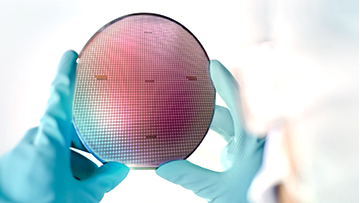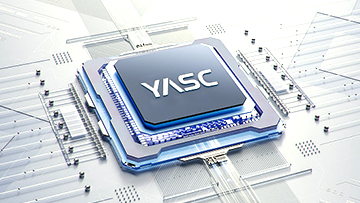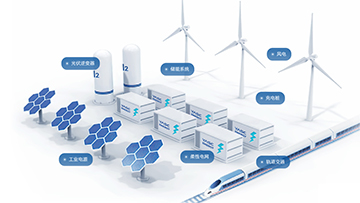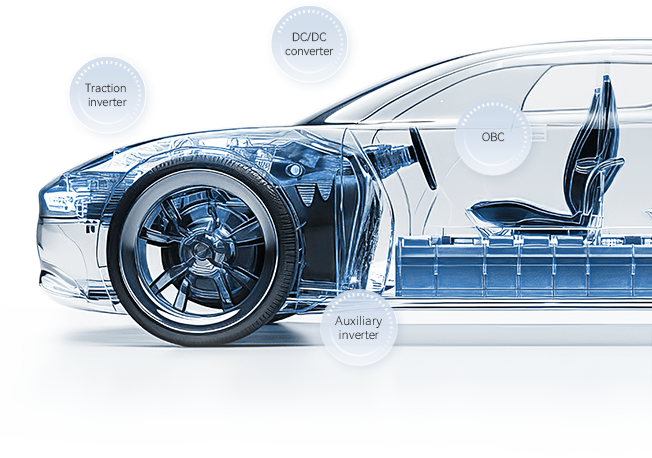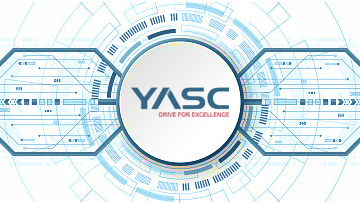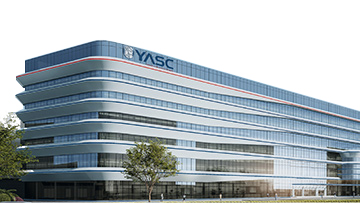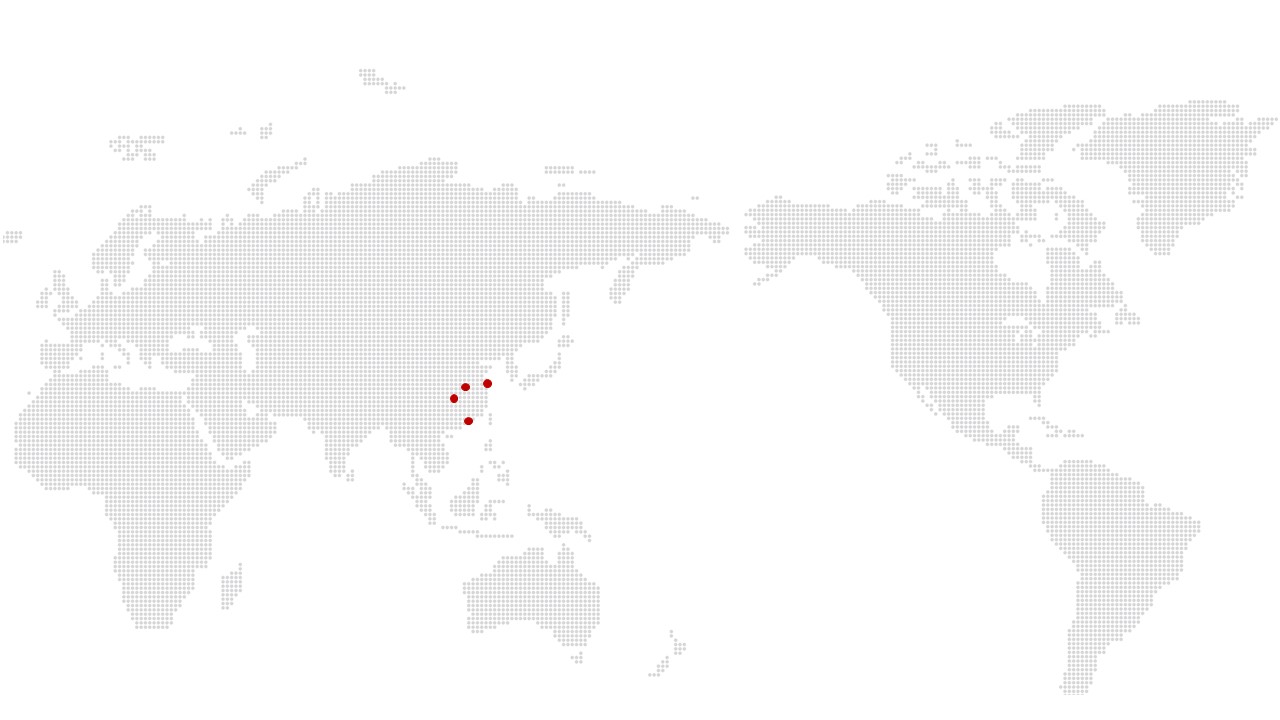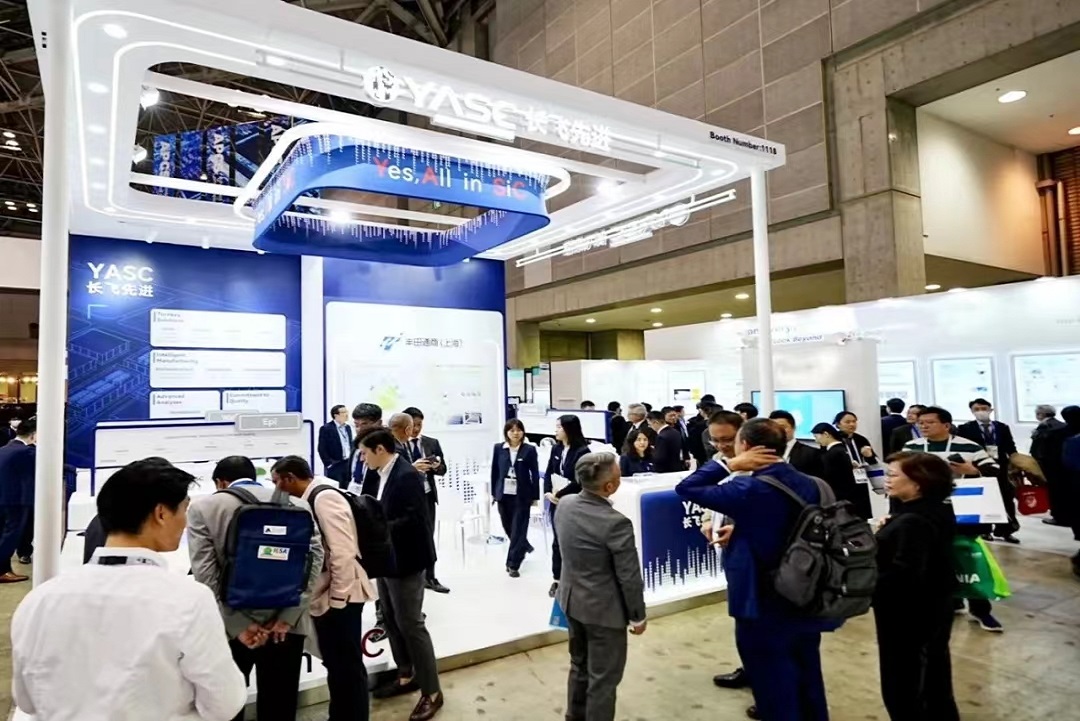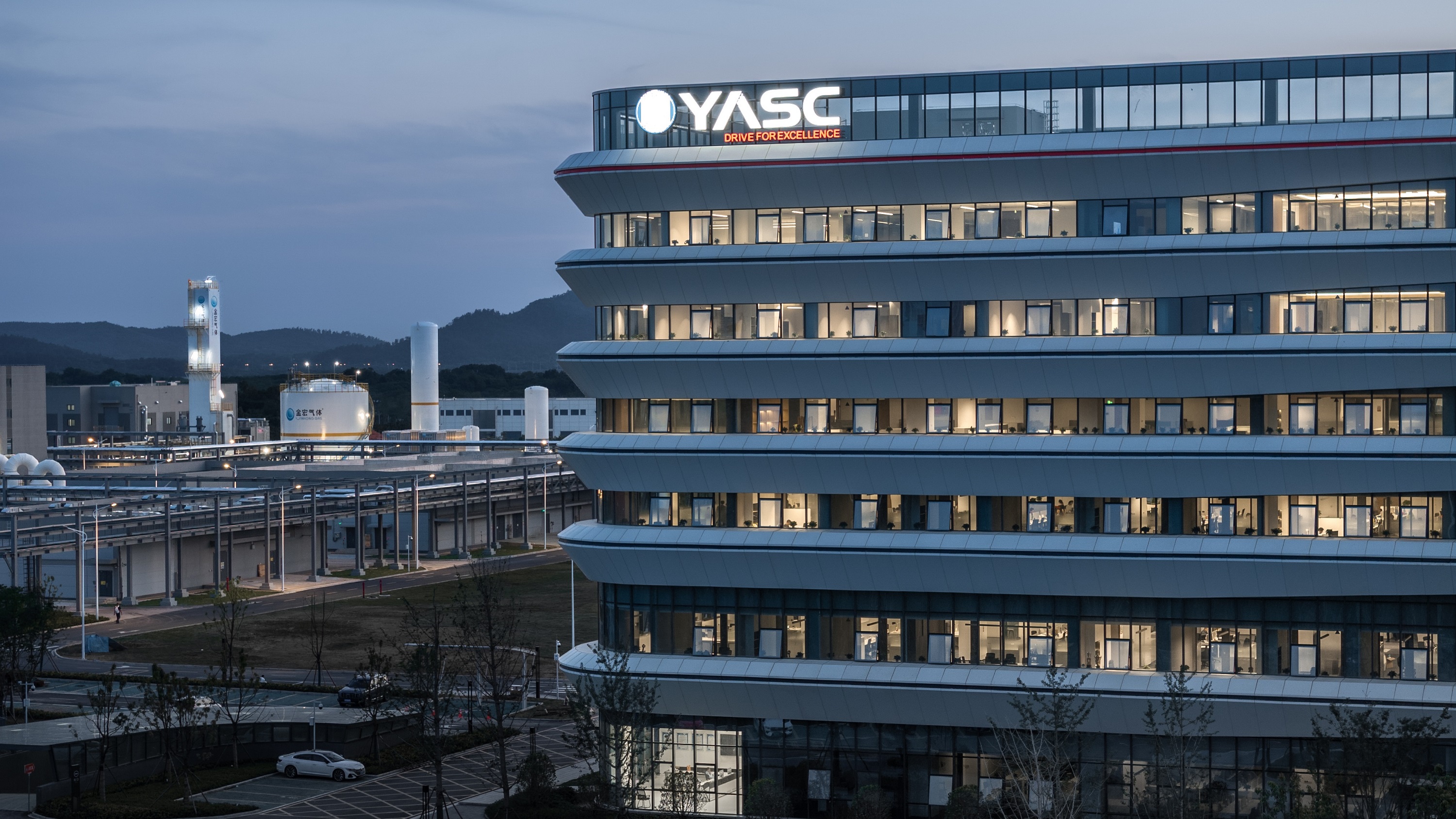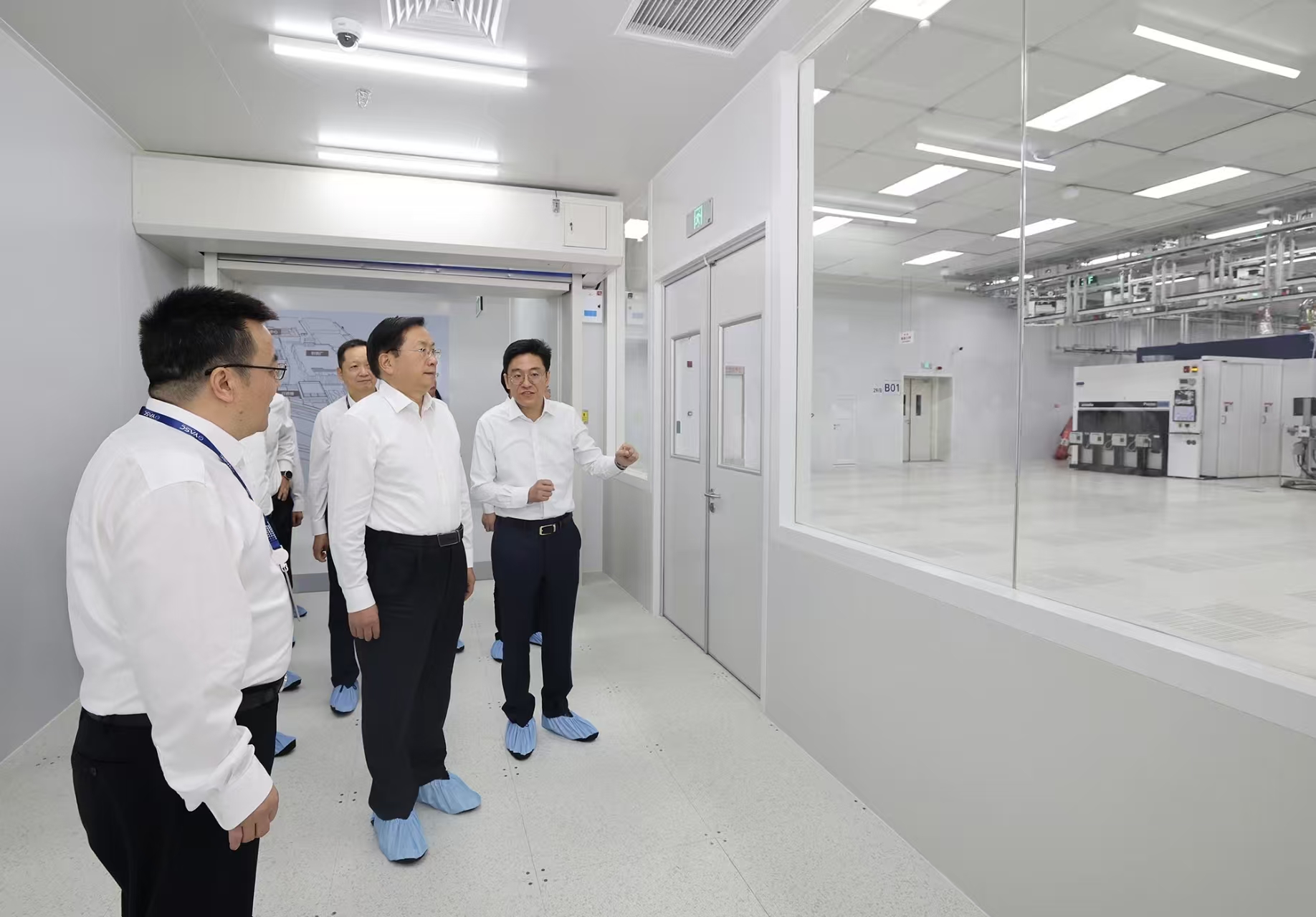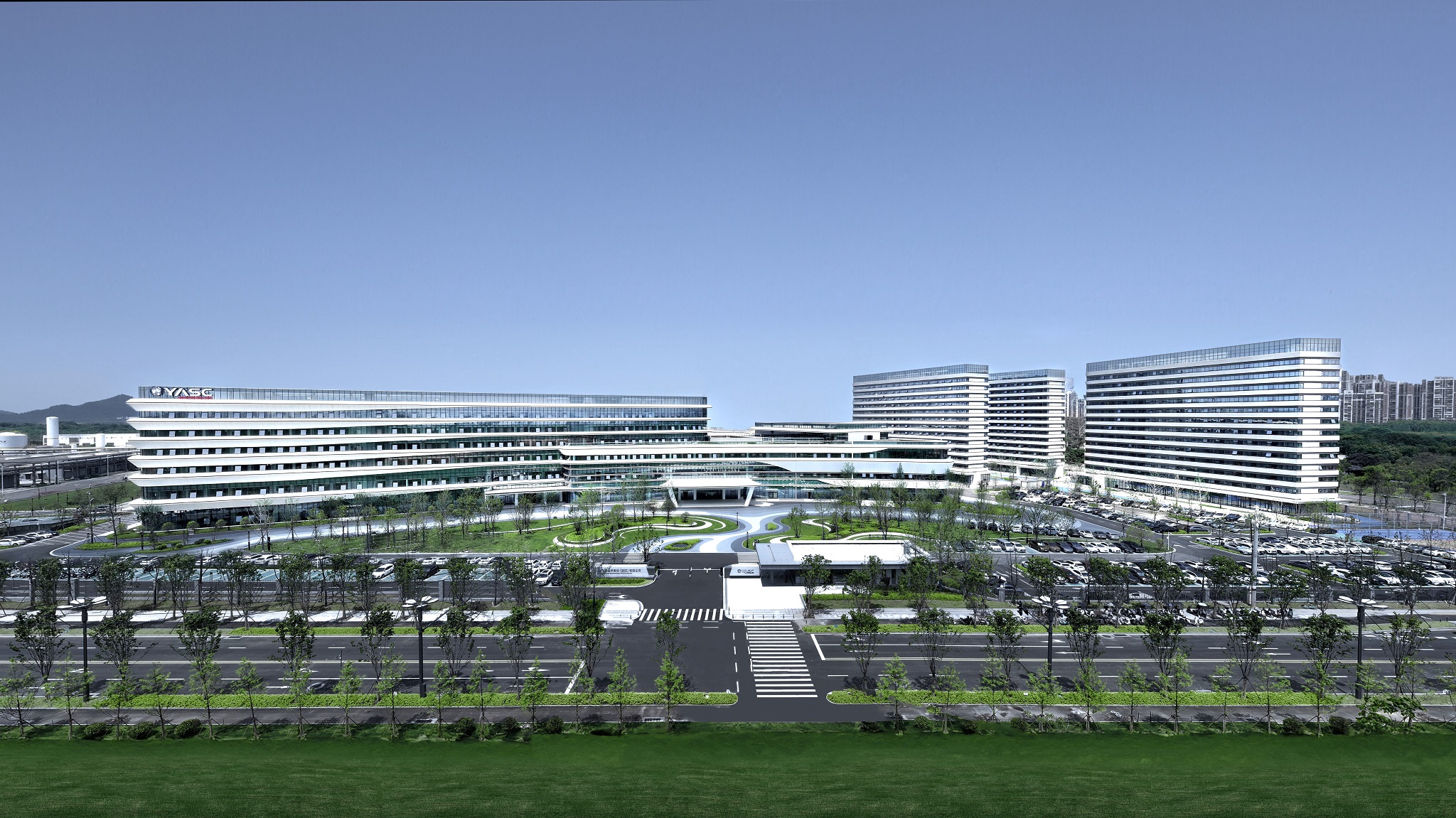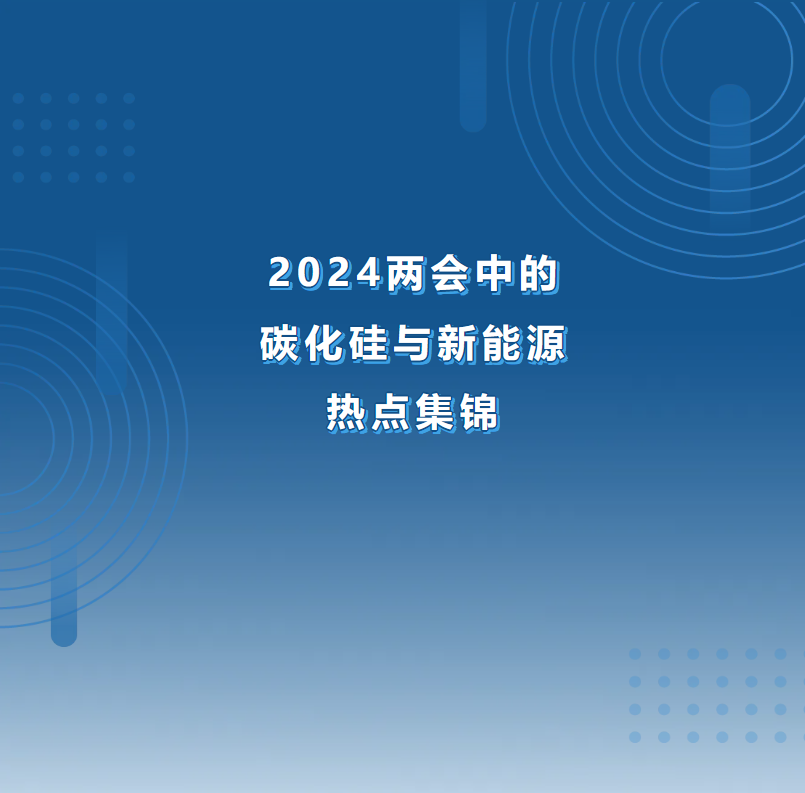
The 2024 NPC and CPPCC sessions (“Two Sessions”) came to a successful conclusion on March 11. Hot words such as “new quality productive forces”, “AI Plus”, “future-oriented industry” and “new trio” have blown into people’s hearts with the spring breeze of the two sessions. When it comes to silicon carbide and new energy, what were discussed at the 2024 Two Sessions? Let’s take a look at the roundup of relevant topics in this issue.
01 Silicon Carbide
*Click the headline for details
Two Sessions Commentary: The silicon carbide semiconductor industry embodies new quality productive forces
Summary: New quality productive forces usually refer to new productive forces that promotes economic development and social progress through technological innovation and industrial upgrading. In driving new quality productive forces, the silicon carbide (SiC) semiconductor represents advanced productive forces for its unique characteristics, and the SiC industry also embodies new quality productive forces.
Proposals from CPPCC members start trending! Many fields in the semiconductor industry come under discussion at Two Sessions!
Summary: The Two Sessions are in full swing, and the semiconductor industry becomes one of focus areas in heated discussions. The suggestions from NPC deputies and proposals from CPPCC members reflect major concerns about the development of the semiconductor industry. Keywords such as AI Plus, key material breakthrough, lithography innovation, quantum computing and new energy vehicles going global emerge in the suggestions and proposals at this year’s Two Sessions. Let’s take a look at thoughts and suggestions of CPPCC members and industry deputies on the industry.
With an investment of nearly CNY 10 billion, the Gree SiC chip factory will be put into production in June!
Summary: Now Gree is targeting higher-performance third-generation semiconductor frontier areas, and investing nearly CNY 10 billion in building a silicon carbide chip factory, which is the world’s second, Asia’s first fully automated compound chip facility, Dong Mingzhu, Chairperson and President of Gree Electric Appliances, recently disclosed at the Two Sessions live broadcast of Yangcheng Evening News. The factory can be put into operation in June this year.
Feng Xingya, an NPC deputy and General Manager of GAC Group: Take a combination of measures to promote the healthy development of homegrown key automotive-grade chip industry chain | Two Sessions
Summary: The 2024 Two Sessions are around the corner. The China Automobile News reporter was informed that for relevant issues faced by the homegrown automotive-grade chip industry, Feng Xingya, a deputy to the 14th National People’s Congress (NPC) and General Manager of GAC Group, intended to submit the Proposal on Promoting Healthy Development of Homegrown Key Automotive-Grade Chip Industry Chain. Feng Xingya points out, with the accelerated evolution of Autonomous, Connected, Electric and Shared Vehicles (ACES), technical requirements for chips in automotive products gradually rise, automotive-grade chips play an ever-increasing role, and the self-supporting capability of chips already becomes a key factor affecting the healthy development of the automotive industry.
Listen to 2024 Two Sessions | Hao Yue, an NPC deputy and a member of the Chinese Academy of Sciences: Further launch major national science and technology programs in integrated circuits
Summary: During the Two Sessions, the CNR.cn reporter spoke with Hao Yue, a deputy to the National People’s Congress (NPC), a member of the Chinese Academy of Sciences (CAS), and Director of Academic Committee of Xidian University, on various topics including high-quality development of the integrated circuit (IC) industry. Hao Yue believes, the Chinese semiconductor, chip and IC industry has come a long way after years of development, and China has become the world’s largest IC consumption market. But overall, while large in size, the Chinese semiconductor and IC industry is not yet strong. Resources should be focused on the application technology level and industrialization, and there is an urgent need to strengthen original innovation.
Suggestions at Two Sessions | Unleash the power of chips, drive high-quality development of digital economy
Summary: New quality productive forces, written into this year’s government work report for the first time, has become one of the hot spots at the Two Sessions. The China Business Journal reporter noticed that although this year’s government work report did not directly mention the “semiconductor/chip”, industry insiders believes that the role of the “semiconductor/chip” industry in developing new quality productive cannot be ignored.
02 New Energy Vehicles
*Click the headline for details
The government work report mentions automobile five times. China accounted for over 60 percent of global electric vehicle output and sales | Two Sessions • most concerned
Summary: In the government work report delivered to the Second Session of the 14th National People’s Congress on March 5, Li Qiang, Premier of the State Council, directly mentioned automobile five times. The report shows that China accounted for over 60 percent of global electric vehicle output and sales. Nowadays, significant progress was made in building a modernized industrial system. Traditional industries saw accelerated transformation and upgrading, strategic emerging industries achieved vigorous growth, and ground work was laid for developing industries of the future. Advanced manufacturing was further integrated with modern services, and a number of world-class innovations were made in major industries.
At this year’s Two Sessions, the automotive industry focuses on these four key words!
Summary: It’s time of Two Sessions again. As one of the important pillar industries in China’s economy, the Chinese automotive industry set multiple new records in 2023. It will promote transformation and upgrading more deeply in 2024 to achieve high-quality development. During this year’s Two Sessions, the automotive industry is naturally still the center of heated discussions. Two Sessions deputies and members made the proposals while keeping abreast with the times, which reflect the challenges faced by the automotive industry and also focus on the future development direction of the automotive industry chain. Let’s take a look at some proposals related to the automotive industry, and what areas they mainly focus on (vehicles going global, intelligent driving, automated driving talent training, data security).
Suggestions at Two Sessions | Over 27 deputies talk about the automotive industry chain, and going global and intelligent driving become sight words
Summary: Enterprises deputies in the automotive industry chain contributed their views and suggestions, led by government deputies. Some rough estimates suggest that at least 27 deputies submitted and reported important proposals during the Two Sessions. We took stock of Two Sessions deputies and members in the automotive industry chain and found, the vehicle manufacturing industry has the most people, and a total of 14 deputies and members from 12 automotive groups attend the sessions (SAIC Group has three deputies and members to the “Two Sessions”), of which 13 deputies and members make proposals and suggestions for the vehicle manufacturing industry.
SASAC calls out three central automotive enterprises: The new energy vehicle businesses will be assessed separately
Summary: The state-owned assets supervision and administration mainly aims at encouraging enterprises to boldly innovate and getting rid of some institutional barriers to high-quality development, said Zhang Yuzhuo, Chairman of State-owned Assets Supervision and Administration Commission of the State Council (SASAC) in the first “Ministers’ Corridor” interview event at the Second Session of the 14th National People’s Congress on March 5. For example, as state-owned automobile enterprises have not moved fast enough in the new energy vehicle (NEV) field, we will adjust the policy to assess the NEV businesses of three central automotive enterprises separately. The above mentioned “central automotive enterprises” are central automotive state-owned enterprises (SOEs) directly supervised by the SASAC, including FAW Group, Dongfeng Motor Corporation and Changan Automobile.
What does it mean that the new energy businesses of three central automotive enterprises will be assessed separately?
Summary: There is much space for the new energy vehicle (NEV) businesses of the above three central automotive enterprises to grow, compared with top NEV manufacturers such as BYD and Tesla, an auto industry expert, who asked not to be identified, said bluntly on March 6. What follows is that the three central automobile enterprises may expand their NEV businesses through acquisition, opening new companies and increasing exports.
2024 Two Sessions | NPC deputy Yin Tongyue: Suggest improving the NEV safety and intelligence standards
Summary: The new energy intelligent connected vehicles (ICVs) have nowadays surged, and become a new boost to rapid development and export growth in the Chinese automotive industry. However, in automotive safety and intelligence standards, given frequent spontaneous combustion incidents on new energy vehicles (NEVs) in China, the safety standards need to be further improved. In this context, Yin Tongyue, a deputy to the National People’s Congress, and Party Secretary and Chairman of Chery Holding Group, suggested at the 2024 Two Sessions improving the NEV safety and intelligence standards.
The hybrid vehicle is the main development direction of energy-efficient vehicles in the future - New interpretation of automotive policy in the government work report and suggestions of industry deputies and members at the Two Sessions
Summary: The gasoline-powered vehicle has received decreasing attention as the new energy vehicle (NEV) has grown fast in recent years. However, in view of the national policy that automobile consumption is encouraged, which among the “gasoline-only vehicle” and “plug-in hybrid electric vehicle” (PHEV) is more energy-efficient and environmentally friendly is actually not the point. It is enough for the user to reduce the pressure of car ownership and environmental protection pressure while better enjoying the car life. The concept of “energy-efficient vehicle” engendered debate among automotive industry deputies and members at this year’s Two Sessions. As the most mainstream technology route of energy-efficient vehicles, the hybrid vehicle has the broadest market base.
03 New energy fields including photovoltaics, energy storage and charging station
*Click the headline for details
Focus on Two Sessions | Accelerate high-quality development of new energy, promote the low-carbon China process
Summary: China’s installed renewable energy capacity surpassed its thermal power capacity for the first time, and China leads the world in PV, wind power and biomass power generation technologies… New energy is the vanguard of China’s efforts to realize the “carbon peaking and carbon neutrality” goals, and the main force in solving a series of energy development challenges. China has already exceeded its commitments to “nationally determined contribution” (NDC) to CO2 emission reduction in the first phase, and Made in China has greatly driven the renewable energy substitution process. When the annual Two Sessions were running, the China Report reporter conducted a special interview on hot topics such as how the energy industry promotes the implementation of major deployments.
Highlights! Energy keywords in the government work report delivered to the 2024 Two Sessions
Summary: The Second Session of the 14th National People’s Congress opened at the Great Hall of the People on the morning of March 5. Li Qiang, Premier of the State Council, first reviewed China’s development results in economy, science and technology, energy and environment over the past year, and made plans for this year’s government work. In the report, the main targets for development this year are projected as follows: GDP growth of around 5 percent. With regard to the development direction and future work focus in the energy sector, Premier Li Qiang put forward the following relevant content: the supply of energy and resources remained stable; China’s installed renewable energy capacity surpassed its thermal power capacity for the first time in history, and China accounted for over half of newly installed renewable energy capacity worldwide.
Hotspots at Two Sessions | How do we do the new energy work in 2024? Highlights in the government work report
Summary: The report put forward major tasks of the government in 2024: we will actively and prudently work toward peaking carbon dioxide emissions and achieving carbon neutrality. We will carry out the 10 major initiatives for peaking carbon emissions, and improve our carbon accounting and verification capacities. We will develop a carbon footprint management system, and expand the coverage of the national carbon market to more sectors. We will advance the energy revolution, tighten control over fossil fuels consumption, and work faster to develop a new energy system. We will step up the building of large-scale wind and photovoltaic power bases and transmission routes, and promote the development and use of distributed energy sources. We will create new ways of storing energy, and encourage the use and international mutual recognition of green electricity. We will see that coal and coal-fired power play their crucial role in ensuring energy supply and our energy supply meets the needs of economic and social development.
New energy system, vehicle-to-grid (V2G), low-altitude economy... What are Two Sessions deputies and members in the new energy field concerned about? | The Voice at Two Sessions
Summary: The new energy field has continuously come under the spotlight during the 2024 Two Sessions. The government work report delivered to this year’s two sessions mentions that we will consolidate and enhance our leading position in industries such as intelligent connected new-energy vehicles, step up development of hydrogen power, new materials, innovative drugs and other cutting-edge sectors, and foster new growth engines in fields such as biomanufacturing, commercial spaceflight, and the low-altitude economy. The STAR Daily reporter combed through the suggestions made by Two Sessions deputies and members in the new energy field this year to present the current hotspots and trends in the industry.
Several NPC deputies call for revising the Renewable Energy Law
Summary: During this year’s Two Sessions, one of the hot topics in the energy industry is to suggest revising the Renewable Energy Law. Several NPC deputies including Tianneng Holding Group Chairman Zhang Tianren and Trina Solar Chairman Gao Jifan put forward their own insights. China’s total installed capacity for electricity generated from renewable energy surpassed 1,450 gigawatts as of 2023, accounting for more than half of the total installed capacity of power generation, surpassing thermal power. However, with the rapid development of the times and the industry, some problems have been exposed in top-level institutional design.
NPC deputy Liu Hanyuan: Support private enterprises to fairly participate in photovotaic power plant investment
Summary: In the context of promoting the “carbon peaking and carbon neutrality” goals, as a strategic emerging industry under the key support of the nation and a principal force driving energy transition, the photovoltaic industry has shown a rapid development trend in recent years, the industry scale has continuously expanded, and the installed capacity has significantly increased year by year. While the installed capacity of photovoltaic power increases significantly year by year, the proportion of quotas obtained by private enterprises decreases year by year and their market share shrinks year by year. In this regard, Liu Hanyuan, a deputy to the National People’s Congress, Vice Chairman of All-China Federation of Industry and Commerce (ACFIC), and Chairman of Tongwei Group, suggested supporting private enterprises to fairly participate in photovoltaic power plant investment and help deliver on China’s “carbon peaking and carbon neutrality” goals.
New ways of storing energy is written into the government work report for the first time. The utilization rate and cost reduction are the focus of deputies and members’ attention
Summary: The 2024 government work report states that we will step up the building of large-scale wind and photovoltaic power bases and transmission routes, and promote the development and use of distributed energy sources. We will create new ways of storing energy, and encourage the use and international mutual recognition of green electricity. We will see that coal and coal-fired power play their crucial role in ensuring energy supply and our energy supply meets the needs of economic and social development. It is for the first time that “new ways of storing energy” is written into the government work report. Some industry insiders say, in the new energy aspect, this year’s government work report focuses more on the absorption of electricity generated from new energy sources into power grids.
Ten Two Sessions deputies and members in the photovoltaic industry and their suggestions and proposals!
Summary: The moment of Two Sessions started again in 2024. The Second Session of the 14th National Committee of the Chinese People’s Political Consultative Conference (CPPCC) kicked off on March 4, and the Second Session of the 14th National People’s Congress (NPC) will officially open on March 5. BJX combed through data and found that NPC deputies and CPPCC members in energy and electric power fields total 169, of which a total of 10 people are in the photovoltaic sector. Here are the relevant suggestions and proposals made by some deputies and members, such as Liu Hanyuan’s “Proposal for accelerating the work on formulating relevant policies on electric vehicles participating in electricity grid storage”.
Roundup | “The voice on energy storage” at Two Sessions
Summary: Energy is the lifeblood of the national economy, and also an important material foundation for social development. 2024 marks the 75th anniversary of the founding of the People’s Republic of China, and a crucial year to fulfill the goals and tasks set in the 14th Five-Year Plan. Among the options to improve the reliability and regulation capacity of the electric power systems, energy storage is a must and an optimal solution. Therefore, energy storage technology has gradually become a critical underpinning of the new energy industry, and ushered in leapfrog development. According to incomplete statistics by Energy Storage 100, up to now, there are more than 10 elite deputies and members in the energy storage industry and related fields that fulfill duties and responsibilities at this year’s “Two Sessions”, contributing a lot of insights for the development of the energy storage industry.
“Charging station” in the voice at Two Sessions
Summary: The “Two Sessions” are ongoing! The Battery Charging and Swap Institute sorted out and summed up the suggestions and proposals for new energy vehicles (NEVs) and charging station building made by some deputies and members. Qian Fangli, a deputy to the National People’s Congress (NPC) suggested moving faster to issue and implement policies on local intelligent and orderly charging and vehicle-to-grid (V2G). Wang Zhengtao, a deputy to the NPC, suggested issuing a compulsory national standard for charging facility installation. Qian Feng, a member of the Standing Committee of the CPPCC National Committee, proposed improving the national battery charging and swap network planning and layout, carrying out the standardization of battery charging & swap and supporting batteries, and driving the building of industrial chain in the NEV battery charging and swap market.
Note: The above information is put together from various public information platforms.







